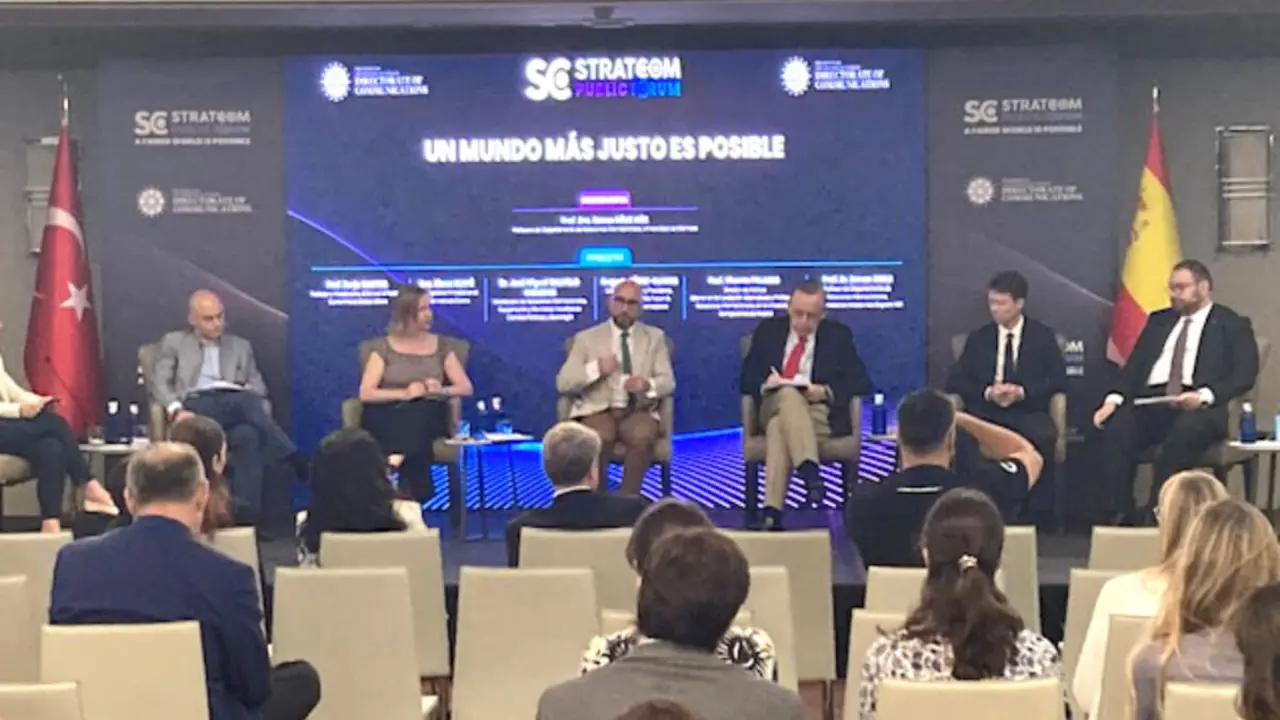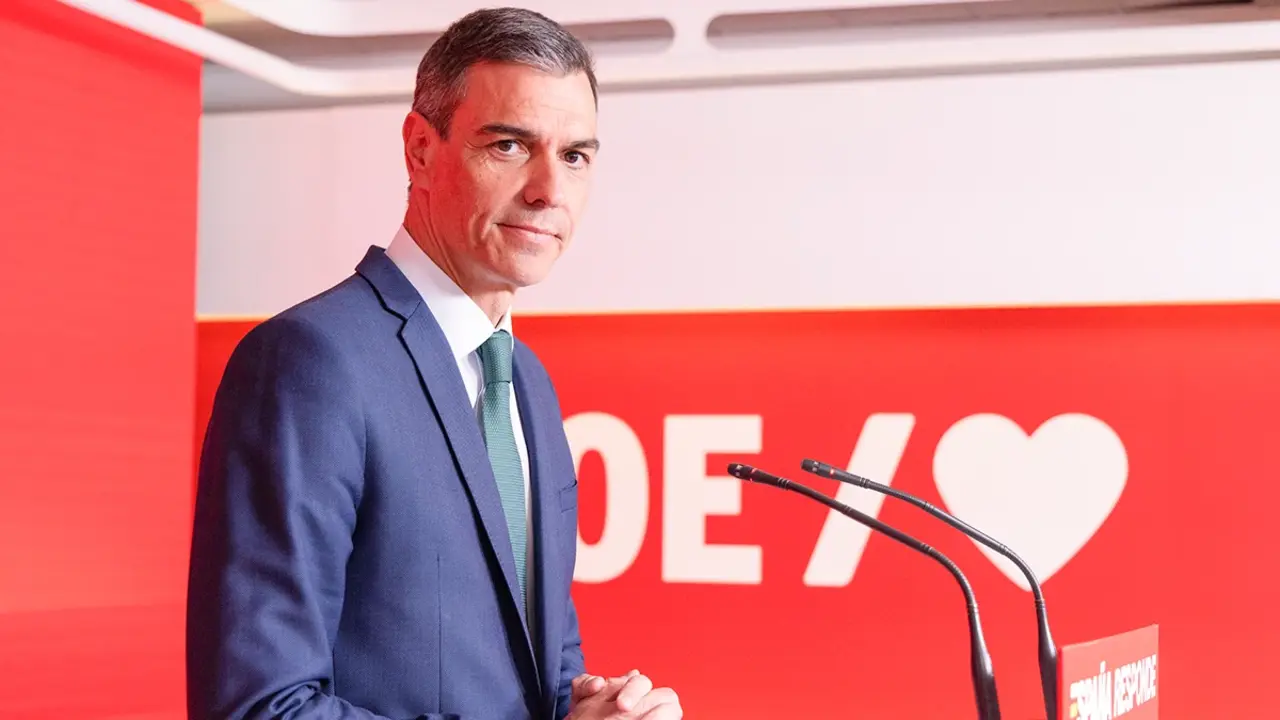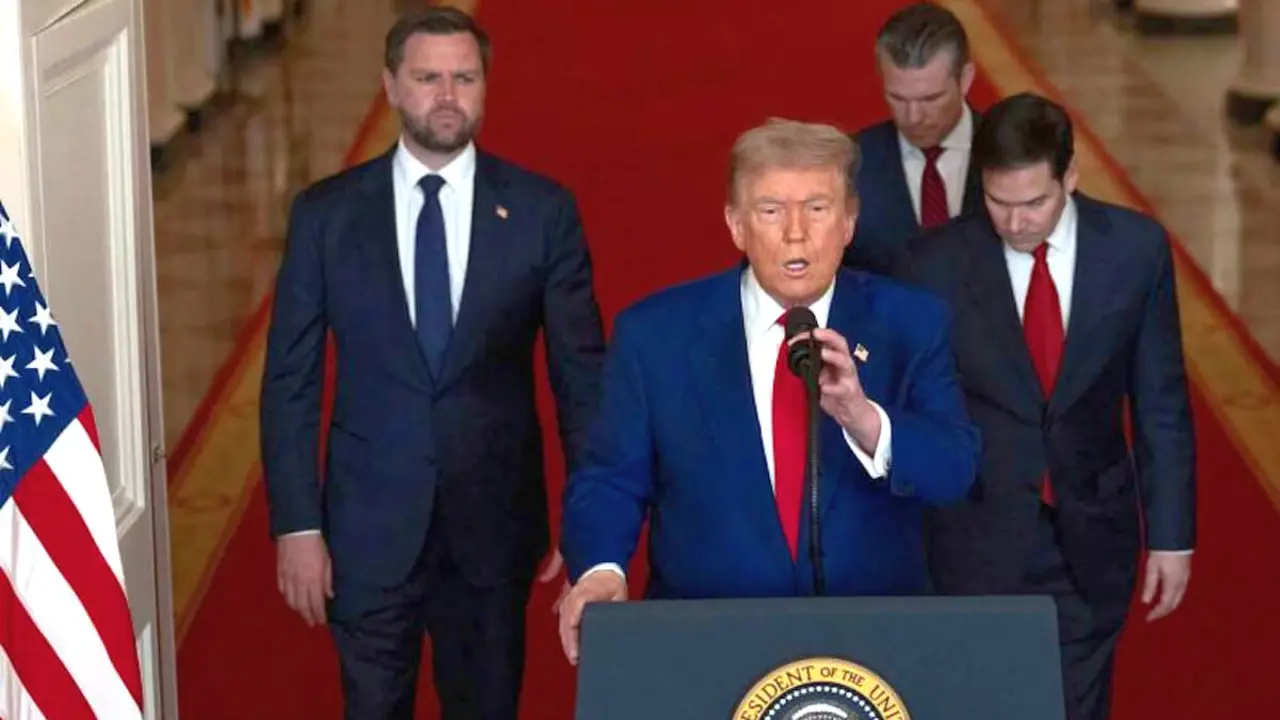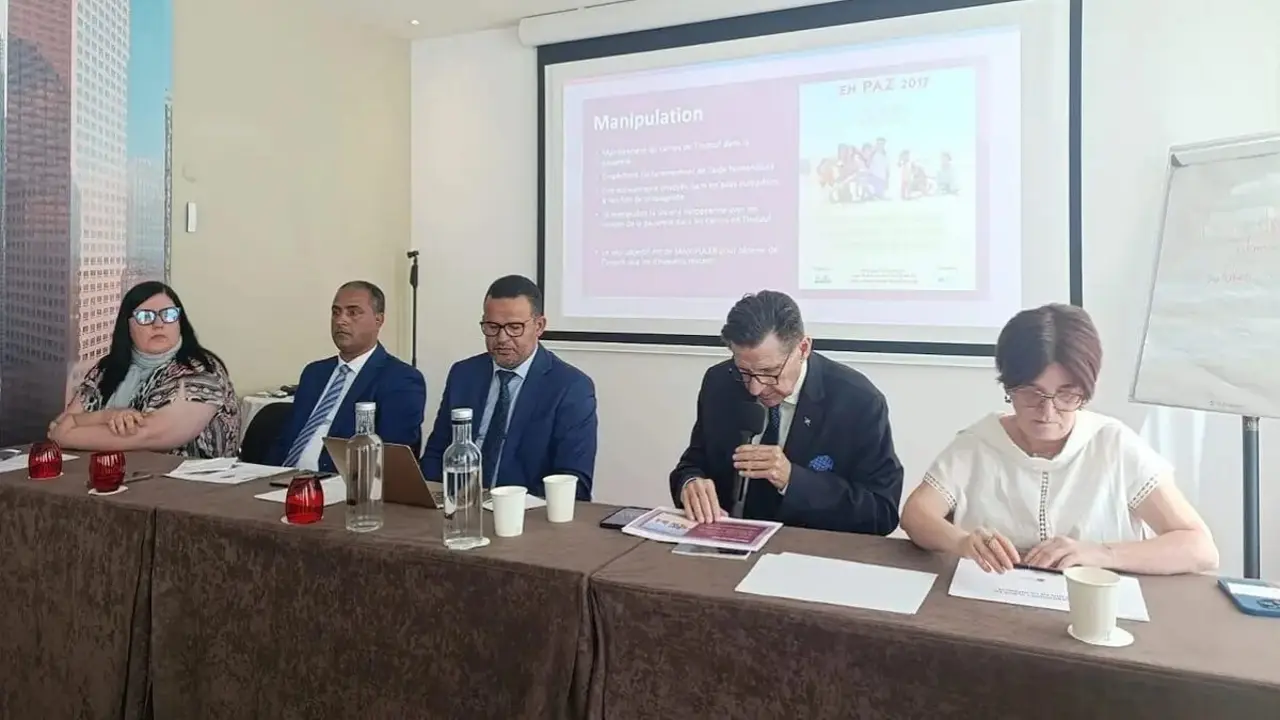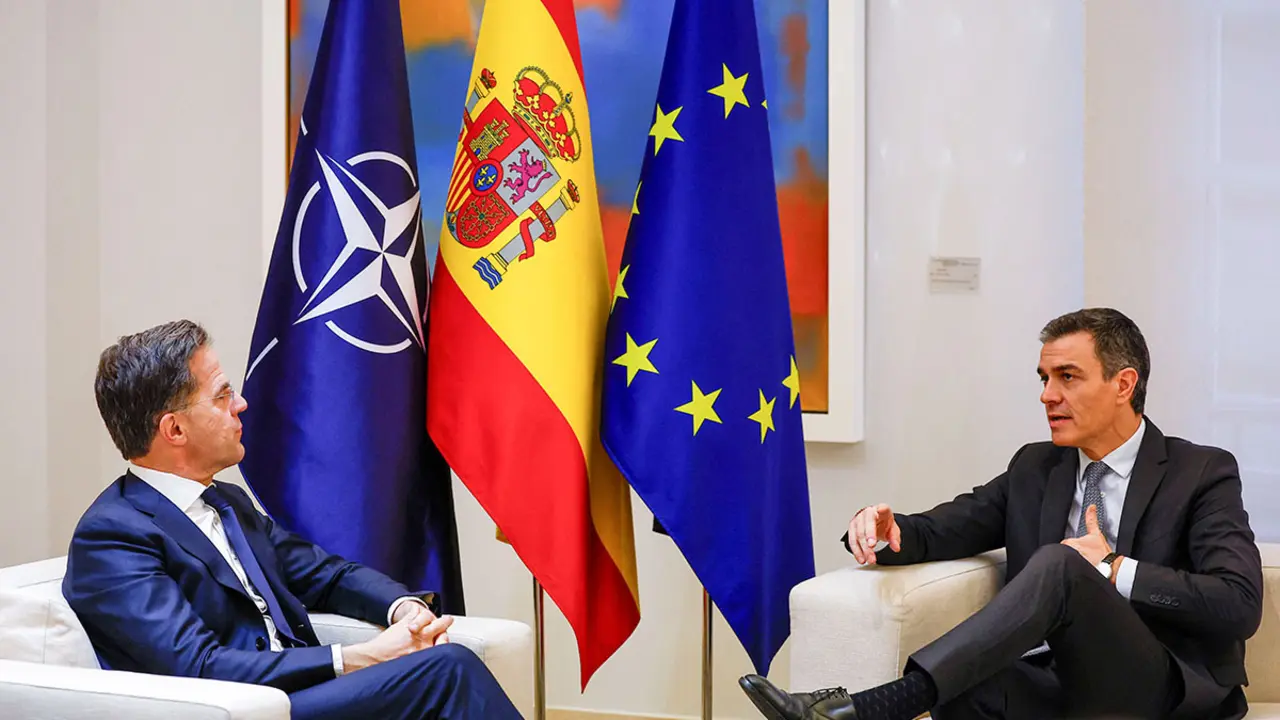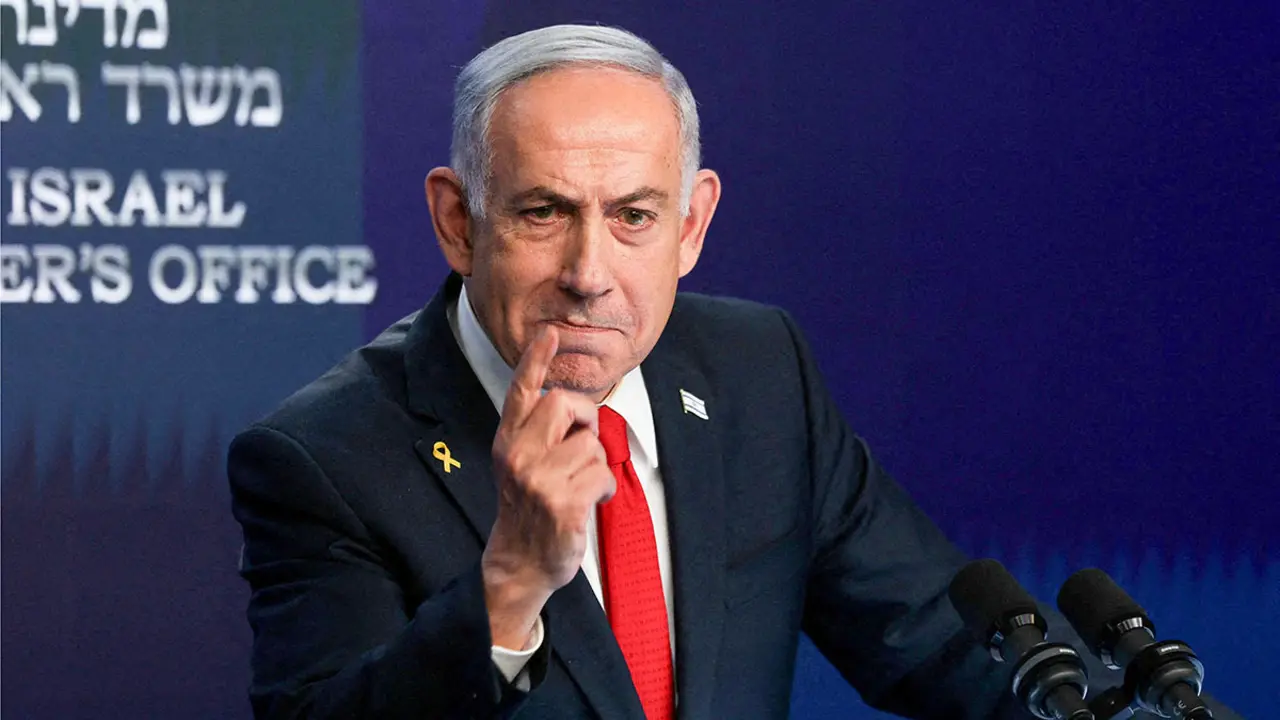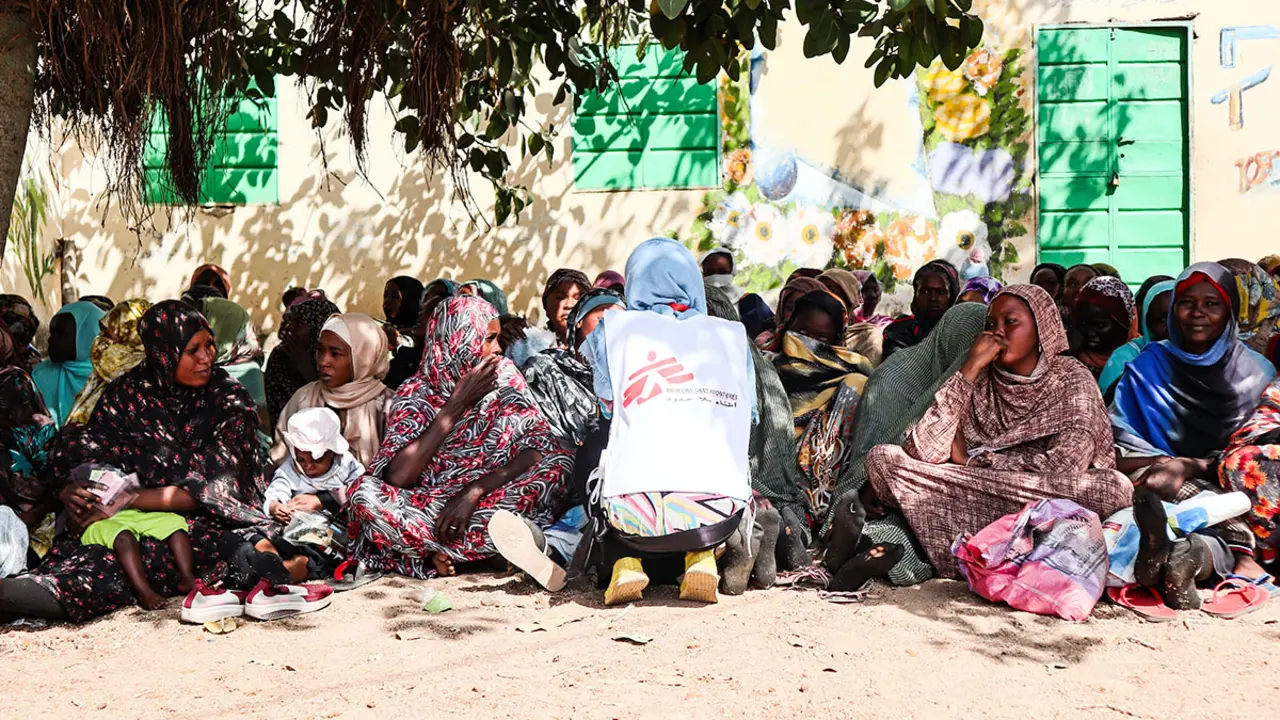Josep Piqué, former Foreign Minister: "We are heading towards an imperfect bipolarity that includes actors such as Russia, Turkey, Iran and India"

The international order is changing by leaps and bounds as a result of the Russian invasion of Ukraine. The global transformation and its repercussions, spurred first by the COVID-19 pandemic and then aggravated by Russian President Vladimir Putin's imperialist ambitions, are almost impossible to foresee. But they leave some clues that invite induction. With issues such as the incipient energy and supply crisis, the exponentially rising cost of living, pressing inflation, proliferating migration and latent political polarisation on the horizon, the underlying question is: where are we headed?
In order to answer some of these questions from the perspective of the European Union, the Complutense University of Madrid (UCM) has hosted the conference organised by the Spanish Federal Council of the European Movement, chaired by the UCM's Professor of International Relations, Francisco Aldecoa, in its San Lorenzo de El Escorial headquarters, as part of the centre's summer courses. The event was devoted to unravelling the EU's future challenges in different areas and those arising from Russia's aggression.
The former Minister of Foreign Affairs of the Spanish Government, Josep Piqué, opened the third and final session of the course this Friday, together with the Vice-President of the Spanish Federal Council of the European Movement, Eugenio Nasarre, in which he analysed the international scene and the issues that will shape the course of the next decade. Concepts such as globalisation, the digital revolution, the ecological transition and the emerging bipolarity formed the backbone of his speech with the characteristic lucidity of those who have a coherent and accepted discourse.

"We must avoid the temptation to fall into adanism. There have always been pandemics, there have always been wars and there have always been economic crises. This obliges us to be humble", Piqué said at the outset, before reflecting on the unpredictability of events: "Nobody was able to anticipate the fall of the Berlin Wall, or the attacks of 11 September, or the financial crisis of 2008 or the Arab Springs, as well as so many other phenomena". This makes it impossible to cushion the effects. On this occasion, the intelligence provided by the US and the UK, albeit contrary to popular belief and to a limited extent, served to contain the fallout.
"I'm going to try to tweet you a few things," the economist by training said in order to condense his main ideas "for the sake of brevity" into a few characters. "I would identify the trend of globalisation, digitalisation or the fourth industrial revolution - which is no longer exclusive to Western countries - the energy transition towards a scheme that allows an effective fight against climate change and, finally, that which derives from a new geopolitical scenario that places the centre of gravity in the Indo-Pacific, where the great global tensions are concentrated". "The centre of gravity is very far from here", Piqué pointed out.

The former minister explained the concept of hyperglobalisation: "It is the integration of all the world's economies into an interdependent system, which has led to great processes. In fact, humanity is better off than it has ever been thanks to this phenomenon". For Piqué, the emergence of "anti-globalisation" or anti-globalist profiles tends to occur precisely in developed countries as a reaction to the punishment inflicted by this process on their economies in favour of others. An angry response to relocation. However, the former minister argues that "there is no end in sight, globalisation is not going to be reversed even though it may be altered" by the war in Ukraine.
We have suffered the consequences of excessive dependence on the countries that control resources," Piqué acknowledged. We have to seek a balance between efficiency and security, which makes the process less efficient, but avoids vulnerabilities", something that was demonstrated in the worst stages of the pandemic when European leaders had to rely on the outside world even for such simple matters as the manufacture of masks. According to the former minister, globalisation leads to decoupling. "Supply is more rigid than demand, which is leading to price deficiencies. There is a mismatch between supply and demand," he added.

Another key factor is the digital revolution, which "is here to stay because anything that is not digital will not exist". Piqué said that there has been an acceleration of digitalisation, but not so much because of the war as because of the pandemic. Although the way war is waged has also changed because of developments in this area: "Military technology is changing. It is increasingly focused on space and cyberspace, leaving behind the usual terrain. Likewise, the ecological transition, which is now subject to the war in Ukraine "so that the effects on the population are not negative".
Piqué also anticipated that we are heading towards a bipolar world, towards a new imperfect rivalry, with nuances, which does not have the same components as the Cold War and which includes other relevant actors "such as Russia, Turkey, Iran and, increasingly, India". The states mentioned by the former minister share a characteristic that he highlighted: "they have had a glorious imperial past". A past that serves as a basis for generating the nationalist nostalgia that guides their behaviour. "Putin has just compared himself to Peter the Great", reminded Piqué, who pointed to "the resurrection" of the Global South, which is not willing to align itself with any of the great superpowers, as demonstrated by the vote in the UN General Assembly to condemn Russia's invasion.
"The West has been left alone," concluded Piqué, who did not mention Europe at any point in his presentation. "Today, Europe is not yet a relevant actor, because to be so it must be perceived as a political subject. That would only happen in terms of integration and sovereignty".

